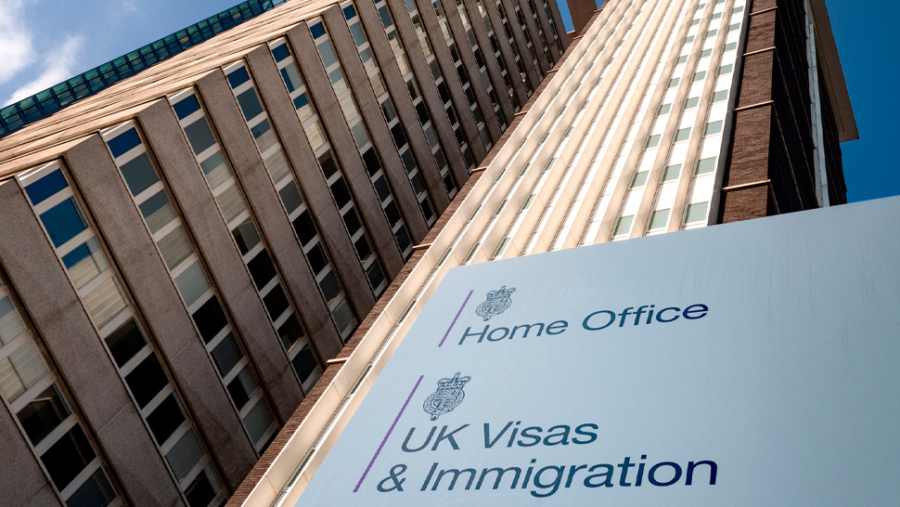

On 9 November, the Home Office updated its sponsor guidance to include some important changes of which sponsor licence holders shall need to be aware.
The guidance notes that have been updated are:
- Workers and Temporary Workers: Guidance for Sponsors Part 2: Sponsor a Worker
- Workers & Temporary Workers: Sponsor a Skilled Worker.
The Home Office guidance sets out a sponsor licence holder’s obligations and duties when sponsoring migrant workers. The guidance is regularly updated, so it is important that licenced sponsors check regularly to ensure they are up-to-date with the compliance requirements of holding a sponsor licence.
The new guidance includes a few changes that will be of interest to sponsoring employers, which we have set out below.
Unpaid leave
The new guidance provides that where there are “compelling or exceptional circumstances” sponsored employees may now be able to take unpaid leave of over four weeks in any calendar year. Previously, sponsored workers were unable to take more than four weeks of unpaid leave unless an exemption such as maternity/paternity leave, or sick leave applied. If a sponsored worker wanted to take a longer period of leave, the sponsoring employer was required to stop sponsoring the worker.
The new rules therefore provide both sponsors and sponsored workers with more flexibility. If a sponsored worker is considering taking an extended period of unpaid leave, this would need to be reported to UK Visas and Immigration (UKVI) via the sponsorship management system (SMS) so they can consider if the reasons for the leave are acceptable.
If the UKVI approve the reasons for the extended leave, the sponsored worker will be permitted to take more than four weeks leave, and the sponsorship will be able to continue.
Delays to start dates
The updated guidance also includes significant changes in relation to circumstances where there is a delay in the start date for a sponsored worker. When issuing a certificate of sponsorship (COS) to a potential new employee, their start date must be included.
This can be quite a difficult date to determine as start dates very much depend on the Home Office processing times regardless of whether or not a start date is in mind for either party. This has become more even more problematic in recent times given the long delays that visa applicants have been experiencing.
Previously, whether or not the employee’s visa had been granted, if an employee was not going to be able to start work on the date provided in the COS, but the start date was going to be delayed by no more than 28 days per employee, the COS could remain valid but the employer was required to report the later start date via the SMS.
If the employee’s start date was going to be delayed by more than 28 days, the employer would need to stop sponsoring the worker – and a new COS and potentially a new visa application would need to be made.
The updated guidance explains that you no longer have to report a change to a sponsored worker’s start date if the delay is going to be for no more than 28 days.
It is worth noting, however, that if it becomes apparent that the start date on the COS is going to change and the worker has not yet applied for entry clearance or permission, or before a decision has been made on their application, we would advise sponsors to report this change via the SMS, as this may affect the period of entry clearance or permission that can be granted.
The updated guidance also says that it may now be possible for a migrant worker to start working for a sponsor where the start date has been delayed by more than 28 days. Previously, this had not been permitted.
If a start date for employment is going to be delayed by more than 28 days, and the sponsor wants to continue to sponsor the worker concerned, they must tell the Home Office the worker’s new start date and the reasons for the delay. The sponsor must report this by no later than the end of 10 working days after the 28 day period via the SMS.
Whether or not the UKVI will allow the worker and sponsor to continue with the sponsorship will depend on the reason for the delay and will be considered on a case-by-case basis. UKVI may cancel the worker’s permission if they do not consider there is a valid reason for the delayed start.
The guidance provides that acceptable reasons for a delayed start may include:
- Travel disruption due to a natural disaster, military conflict or pandemic
- The worker requiring an exit visa from their home country where there has been administrative delays in processing this
- Illness, bereavement or other compelling family or personal circumstances.
The ability to delay a start date by more than 28 days is therefore still subject to the UKVI’s approval on a case-by-case basis, however, we expect these changes will be welcome news to employers, providing a bit more flexibility where delays occur.
Defined certificate of sponsorship requests
A defined COS is required where a sponsored worker is applying for their visa from overseas. The new guidance says when an application for a defined COS is made via the SMS, the number of working hours per week must now be included as part of the job description summary in that application.
If the working hours are not included, the defined COS request is likely to be refused. It is therefore important that your Level 1 and Level 2 users are aware of this change.
Right to work checks
There have been various changes to the right to work check processes over the past year, the details of which we reported here. The new guidance also contains a reminder to sponsoring employers of an existing right to work check requirement that can easily be overlooked.
Where an individual makes a change of employment application under the sponsor licence system, before a sponsored worker starts a new role, a new right to work check should be carried out once their application has been approved. This applies even where the change of employment application relates to a new role with the same employer.
The right to work check obtained at the start of employment will provide a statutory excuse against civil penalties up until the end of the original permission to stay in the UK. However, once a new application has been made, even if it is just for change of employment, the employer can no longer rely on the previous right to work check and a new right to work check will be needed.










